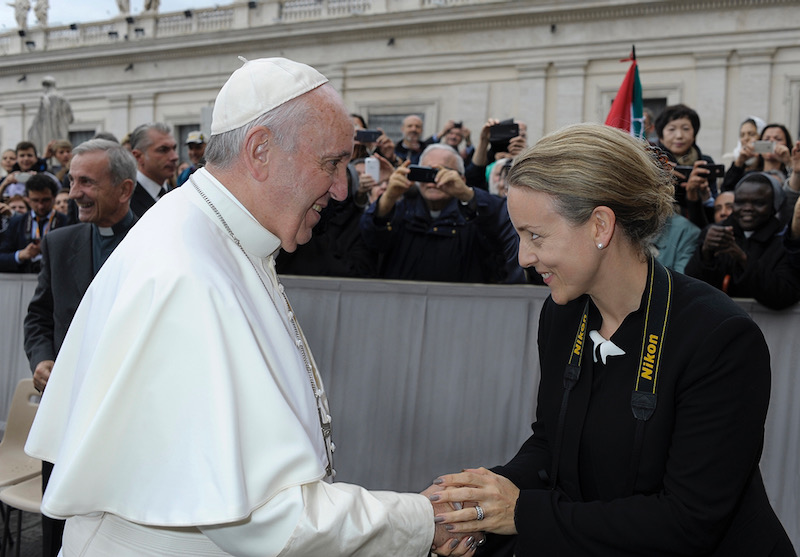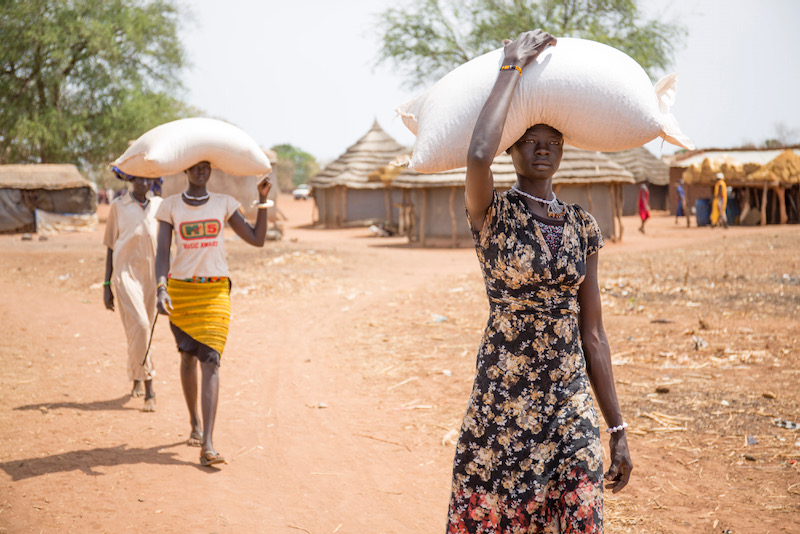Coronavirus is spreading around the world, but in South Sudan it joins three other pandemics already ravaging my country – constant conflict, hunger and sexual violence. And Covid-19 is making them worse.
An economy already in trouble, thanks to years of civil war, has been further crippled by Covid measures and restrictions in the capital Juba, and in other towns. People who live by earning a daily wage were caught unprepared, and the most vulnerable do not have enough to eat.
In my country more than seven million people face the prospect of extreme hunger, that’s nearly half the population. Many others and I were shocked to read of the UK Government's proposed plan to drop its foreign aid support to my country from £110 million to £45 million.
Statistics never tell the whole story, you have to put your feet in the other’s shoes and imagine that it is your daughter, sister, auntie, grandmother dying in front of you because of hunger or a preventable disease. Tackling poverty through the UK aid budget has been the difference between life and death for the many families I see in the capital Juba and across the country.
The situation is worst among the many thousands of displaced people who’ve fled to Juba. They do not have clean water to drink – let alone wash their hands – or food to eat and cannot practise social distancing. With starvation a more visible threat than the virus, children go out on the streets to beg for food, despite the danger of the disease spreading. Day and night outside my priest house, people are asking for something to “quench their hunger”. It is the poorest, the old, women and children who are paying the price.
We are all feeling the painful impact of the spread of the coronavirus causing fear and uncertainty – this pandemic shows the colossal cracks that divide our world. South Sudan’s health system is ill-equipped to deal with this crisis – we simply do not have the equipment or ability to handle large numbers of people falling ill. Those who have Covid-19 are rarely quarantined, but are kept at home, with the chances of infecting others very high.
These dangers are magnified in the large areas of the country where insecurity is rife. Health facilities are even more limited in rural areas beset by attacks and revenge raids among the two main cattle-herding tribes, despite Church initiatives to persuade tribal elders and youth to end the cycle of violence. On top of all this, there is an increase in abuse and sexual violence against women and girls by men forced by the pandemic to stay at home. The South Sudan Council of Churches (SSCC), through its women’s league, is hearing of schoolgirls being exploited, and is taking steps to protect them.
This is just the latest in the tireless efforts of the churches, working with Muslim leaders and traditional religions, to respond to the challenge posed by the coronavirus. We have gone from house to house and used loudspeakers in the streets to warn that this is a deadly disease which prevents people coming together to worship, but the message has not reached everyone.
Things were not normal in South Sudan even before the arrival of this virus, with social structures destroyed by years of conflict. In this situation the role of the churches – to which two-thirds of the population belong, with the Catholic Church the largest – is paramount. No other institution has the same trust, or ability to reach the grassroots. If this pandemic is to be overcome, it will be in large part through the efforts of the churches.
What is the future for South Sudan? The trauma of Covid-19 has driven people even further apart, and it might seem that there is no way out of our problems. But we preach hope: hope that people will learn to follow the measures necessary to keep the disease at bay, and that after Covid-19 we can invest in making the health system better. Then we can work to cure the other pandemics afflicting our society.
I sincerely hope that the UK’s vision to improve innumerable lives isn’t disrupted to putting the national interest, security, or economic needs first. An effective UK aid budget must represent our better selves, accountable and transparent so that the poorest and most vulnerable are able to transform their lives to live and work with dignity and reach their full potential.
With these prayerful thoughts I hope that the UK aid budget will continue to be the catalyst for ambitious action on global poverty. There is still work be done before poverty is truly history and justice and equality prevail.



 Loading ...
Loading ...
What do you think?
You can post as a subscriber user ...
User comments (0)